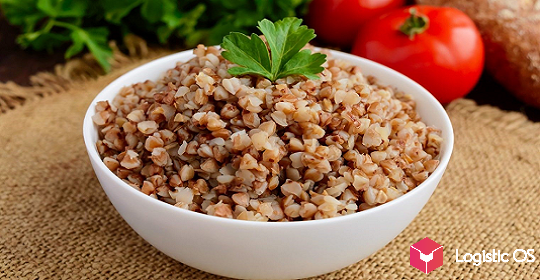Russia occupies a strong position in the top world food exporters, but it needs to accelerate its development.
According to statistics, now the Russian Federation has a share of the world agricultural market of about 2.1%.
This allows it to be in the top 20 largest food suppliers. This is not a bad result, but Russia is capable of more.
It demonstrates a high rate of increase in export rates. For example, over the past 10 years, exports of agricultural products have grown by 2.5 times.
From 2017 to 2022, there was an annual growth of almost 15%.
What makes this growth possible?
First of all, global food prices are rising.
According to the UN FAO, the world price index has added more than 50% from 2019 to 2022. This is due, among other things, to the disruption of supply chains, first due to the coronavirus pandemic, and then due to the conflict in Ukraine.
Secondly, Russia has significantly increased the production of agricultural products after 2014, when an embargo was introduced on the import of many types of agricultural products into the country.
This gave a very powerful impetus to Russian farmers, thanks to which, in just a decade, Russia has turned from an importer of agricultural products in many categories into an exporter.
Thirdly, a low exchange rate of the ruble has now been established, which is extremely beneficial for exporters: for every dollar they earn, they receive a lot of Russian currency.
Finally, the state is doing a lot to support Russian agricultural producers.
For example, in 2017, preferential loans were introduced: many enterprises in the agricultural sector were able to take out loans at only 1-5% per annum.
In recent years, all kinds of subsidies with which the state seeks to support the agricultural sector have become widespread.
What problems are left for Russia to overcome?
Despite the great potential, there are also difficulties.
For example, Russia has not yet built logistics supply chains. To resolve this issue, there is not much time left, experts warn, otherwise it will be more difficult to compete with other exporters of agricultural products — the US, EU, Canada, Australia, Brazil.
In addition, experts warn: Russia can turn grain into a “new oil”, that is, again “sit on the needle”, this time grain.
It means repeating the mistakes of the past:
— Export raw materials, do not process them.
— Spend all the proceeds, and not invest it in the development of the industry.
To prevent this, a number of measures are being taken. For example, investments are being made in neural networks, in drones for farmers, as well as in deep processing of grain.
It is assumed that this should help Russia not only to enter the world market as a major exporter, but also to gain a foothold there for a long time.

